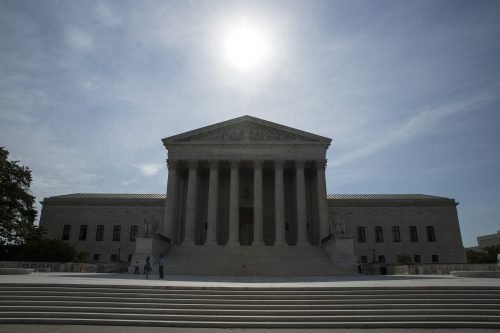
The following is the latest in a series of blog posts
accompanying newly-released Bradley Lectures Podcast episodes. The subject of
this post is “Work, progress, and administration,” an episode
examining Amity Shlaes’s 2004 Bradley Lecture, “Mr. Mellon and Mr. Schechter:
The New Deal and Class Warfare.”
A poor immigrant butcher who barely spoke English nearly killed
the New Deal in 1935.
Martin Schechter turned out to be but a speedbump for
President Franklin Delano Roosevelt’s steamrolling executive campaign, but in
many ways he helped to foreshadow the contentious future of small businesses
and individuals pitted against big government. His lawsuit against FDR’s
National Recovery Administration set off a political Rube Goldberg machine
implicating the nondelegation doctrine, court packing, minimum wage laws, judicial
restraint, anticompetitive economic policy, executive overreach, promotion of
the “common good,” technocracy, protectionism, job creation, and the New Right.
All this over a sick chicken — one that turned out to be
perfectly kosher, literally and figuratively.
As historian Amity Shlaes recalls in her 2004 Bradley Lecture, Mr. Schechter was harassed, arrested, and prosecuted for various “crimes” related to his business: He allowed customers to select their own chickens from his coop, set prices in a competitive manner, and essentially engaged in free market economics. His conviction was ultimately ruled unconstitutional by a unanimous Supreme Court, which held that part of the National Industrial Recovery Act was facially illegal because it constituted an inappropriate delegation of legislative power to the executive branch. This was the last time the Court relied principally on the nondelegation doctrine — still hotly debated today — to invalidate a law.
That curious historical factoid has much to do with the
best-known consequence of the 1935 Schechter
decision and two other anti-New Deal cases decided on that same day: FDR
hatched a plan to pack the Court with justices who would rubber-stamp his enormous
executive-expansion project. The Court relented in 1937, upholding a
minimum-wage law in the West Coast Hotel case.
America’s “honeymoon with a benevolent dictator,” as one British writer termed
it, could continue apace.

Schechter’s
Pyrrhic victory reverberates still today, as Americans across the political
spectrum squabble over the proper scope of the federal government. The NRA’s
goal, after all, was promotion of the common good, especially inasmuch as that
entailed creating jobs and steady incomes for Americans. There was some economic
foolishness to the project — minimum wage laws caused unemployment to rise,
Shlaes notes — but FDR’s heart was in the right place. His penchant for quasi-dictatorial
rule, manifest in his expansive view of executive power and his intimidation of
the Supreme Court, was the price to pay for pulling America out of the Depression’s
rut and maintaining a base level of economic security.
Opposition to this mode of thinking — and steadfast support
for Martin Schechter’s objections — helped fuse disparate strands of
center-right thought into the modern conservative movement. Those opposed to
the New Deal included libertarians, social conservatives, and anti-Communists
of all stripes who saw in Schechter
(and in New Deal administration after West
Coast Hotel) the most dangerous and tyrannical excesses of government.
There was a “knowledge problem” endemic to FDR’s central planning, which meant
that the state could hardly command an economy towards jobs and prosperity.
FDR’s executive machine smashed religious practices such as Schechter’s
traditional kosher butchering (which it deemed insufficiently sanitary and
therefore illegal). And everywhere the power and force of the state was
becoming centralized and overbearing, threatening the liberties that
characterized the American founding and political tradition.
The modern argument from free market skeptics on the right
and left that economic growth is a tool appears, in the shadow of the story of
Schechter and the NRA, to have partial merit. Skeptics are right that there is
more to the American life than ever-greater economic prosperity; stability,
belonging, and meaning are not to be overlooked, nor are they categorically
beyond the reach of public policy.
But economic growth is also inextricably linked — indeed, it is the emergent order of — economic liberty. Free people acting freely is both economically efficient and crucial for supporting ends that most conservatives and liberals alike hold dear: The ability to pursue one’s own highest good, to provide for a family, to serve the needs and desires of a community. Small steps towards abrogating that liberty from the top down, even in the name of legitimate goals for the public sector, can have vast unintended consequences. Just ask Mr. Schechter.
The post The sick chicken and the national recovery appeared first on American Enterprise Institute – AEI.
